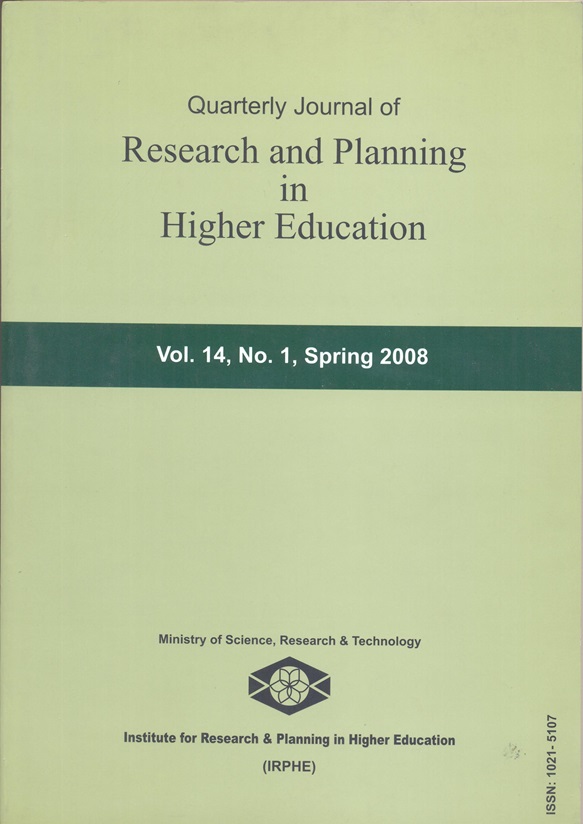A Study of Relationship between Organizational Culture and Leadership Styles in Iranian Institutes of Higher Education
Authors
1 Assistant Professor, Department of Humanities and Social Sciences university Tabriz
2 Associate Professor, Department of Psychology and Education Shahid Beheshti University
3 Professor, Department of Psychology and Education Shahid Beheshti University
4 Assistant Professor, Department of Mathematics Shahid Beheshti University
Abstract
The present study aims to analyze the relationship between organizational culture and leadership styles among the deans of nine Iranian universities. Overall, 562 faculty members filled in the questionnaires on the organizational culture and the leadership style of 49 deans. Organizational Culture Assessment Instrument (OCAI), Management Skills Assessment Instrument (MSAI), and Organizational Leadership Assessment (OLA) were used as tools for data gathering. The statistical population of the study was chosen from seven similar faculties of nine universities, comprising 3839 faculty members. To avoid the risk of participation, the questionnaire was distributed among all faculty members.
The results of the study suggest that there is a lack of congruence between the current and desired professional culture of the faculty members. The faculty members believe that they operate in a profession characterized by an overarching desire for stability, control, formal rules and policies, coordination and efficiency, and goal and results oriented. However, the respondents of this study indicated that their desired culture should be one that emphasizes flexibility, discretion, participation, human resource development, innovation, creativity, risk-taking, and a long-term emphasis on professional growth and the acquisition of new professional knowledge and skills. The statistical analyses indicated that the faculty members consider a manager as competent who enjoys leadership style and management skills based on adhocracy.
Keywords
 Quarterly Journal of Research and Planning in Higher Education
Quarterly Journal of Research and Planning in Higher Education
